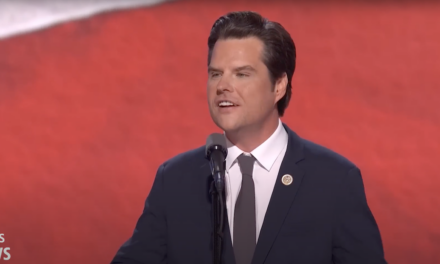We support our Publishers and Content Creators. You can view this story on their website by CLICKING HERE.
“The Return” is a rare gem from Hollywood; a psychological drama with powerful understated acting performances and beautiful locations. It’s a retelling of the suitor’s arc at the very end of Homer’s epic poem The Odyssey. It seems like a risk to focus on the least fantastical part of the poem, but there is plenty of material to mine about masculinity, mid-life, failure, and overcoming oneself.
The film stars Ralph Fiennes as Odysseus and Juliette Binoche as Penelope. The pair was last seen together in “The English Patient,” and their chemistry is even better 30 years later. Both of their performances are extremely intense and mesmerizing to watch. Directed by Uberto Pasolini, he does a fantastic job immersing the viewer in ancient Ithaca in a visceral way, the island feels small and the characters feel real. There are no large special effects pieces and you might think there is not enough content in this part of The Odyssey to flesh out a full film, but Pasolini lets his actors and script build up the necessary suspense and drama.
A quick refresher on The Odyssey: After leaving home with the island of Ithaca’s best men, King Odysseus is successful in the 10-year Trojan War. On his journey home, he and his men endure the fates of the Gods and an adventure full of sirens, witches, and a cyclops. While he was away, Ithaca was overrun with suitors for his wife Queen Penelope. The suitors have run amok, terrorizing the locals and squatting in his castle. Penelope is deep in grief, and Odysseus’ 20-year-old son is still immature, failing to protect his mother and the island.
The film opens with Odysseus pathetically washing up on Ithaca, completely naked, ragged, not sure where he is, and surprised to be alive. Pasolini uses a full frontal shot of Fiennes here to set the tone and the importance of Fiennes’ physical transformation throughout the film. He successfully pulls off looking like a broken homeless beggar and the shadow of a Marvel superhero at the same time. The viewer is left wondering if our hero really has what it takes to take back what is his.
The suitors are a multi-cultural group from minor kingdoms all over the Mediterranean there to win Penelope’s hand and her kingdom, but after years of Penelope’s stalling, the decent men have left. Only the scoundrels and violent men remain. They are now killing each other and quickly losing patience. Penelope spends her time grieving by weaving Odysseus’ burial shroud as the suitors drink her ale and eat her food, growing more and more unruly each day.
Odysseus disguises himself as a beggar and identifies himself only as a soldier from the Trojan War. When he realizes he is on Ithaca he is beside himself and Fiennes gives a gut-wrenching physical performance, sprawled on the ground and kissing the earth. He brings depth to the character without words, but when he does speak, he is so clearly in command it is a bit of a relief as the watcher and you easily fall under his spell.
This film is not an action movie, however, when violence erupts it is swift and brutal. There is a memorable chase scene that showcases the natural beauty of the locations. Dogs hunt through olive groves, and our heroes scamper up cliffs and waterfalls to evade the pursuit. The cinematography is top-tier in these outdoor scenes. The pacing and suspense are masterfully driven by small encounters like Odysseus deciding to go to the castle to see his wife. Will she recognize him? Will she be angry with him? We know it’s coming as a viewer, and even if you know the story every beat still feels fresh.
Most critics are framing this film as anti-war, celebrating the sensitives of Odysseus’ suffering and PTSD, but I think that’s too shallow of a lens. The suitor story is ultimately a story of mid-life and self-control. Odysseus went to conquer his enemies yet made many mistakes along the way, costing the lives of his men. He betrayed his marriage vows with nymphs and goddesses while the thing he was supposed to protect crumbled. This is a theme many men encounter at mid-life. They do what the world asks, sacrificing for the things they love while simultaneously betraying them and falling short. Odysseus returns a failure to himself but a hero to the populace. He was an absent father and husband, failing to raise a capable son and to protect his wife. He’s got one last chance, as Jordan Peterson would say, to clean his room.
Hollywood has been deliberate in their approach to gender for the last decade. If you pay attention to male characters in most Hollywood films, they tend to be submissive men who “give space” to women who take over the traditional male role as a protector. It’s very rare to see a good man on screen, when there is masculinity portrayed it is either from a rogue-like man-child or an evil “alpha male” full of toxic masculinity. “The Return” escapes this trap and shows us the authentic experience of what it means to be a man and a woman in a fallen world.
Binoche delivers a strong performance as Penelope, showing matriarchal poise through her political maneuvering. She keeps the unruly suitors at bay by understanding what these men want and using it to her advantage. She is constantly stalling for time to protect the life of her son, who the suitors will surely murder sooner or later. When Odysseus and Penelope are reunited, she asks for news of her husband and the war. She knows that war means rape and murder and asks him: “Why do men go to war to kill and rape. Did you rape?” to which he stares mutely, betraying the answer they both know.
As the film draws to a conclusion, Odysseus’ identity is revealed to his old wet nurse by a scar on his leg. She looks him in the eye and challengingly tells him to “kill them all.” The violence that Penelope so loathes is the only solution to the problem they face, and Odysseus must again rise to the bloody occasion for a final time, and accept the psychic burden it entails.

 Conservative
Conservative  Search
Search Trending
Trending Current News
Current News 





